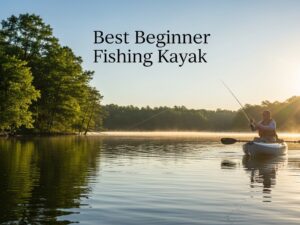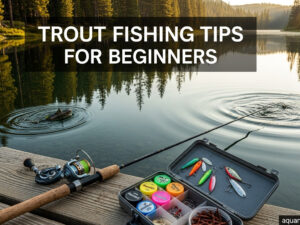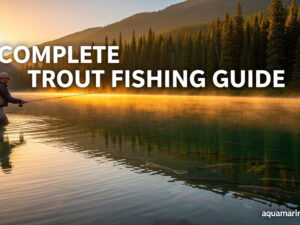The average fishing license costs $25.42 for residents and $61.52 for non-residents annually, but prices vary significantly by state, duration, and type. Whether you're planning a weekend fishing trip or gearing up for a full season, understanding fishing license prices by state helps you budget effectively and ensures you're fishing legally.
Every state except Hawaii requires anglers to purchase a fishing license, with costs ranging from as low as $10 for a single-day permit to over $140 for non-resident annual licenses in premium fishing destinations. This comprehensive guide breaks down how much fishing license cost varies across all 50 states, explores money-saving options, and reveals where to purchase your license quickly and conveniently.
Understanding Fishing License Requirements
Fishing licenses serve as crucial conservation tools that fund wildlife management, habitat restoration, and fish stocking programs nationwide. The revenue generated from license sales directly supports the waters you fish, making every purchase an investment in future fishing opportunities.
Most states require anyone 16 years or older to have a valid fishing license, though age requirements vary. Some states mandate licenses starting at age 12, while others extend the requirement to age 18. Understanding your state's specific rules prevents costly fines that typically range from $50 to $500 for fishing without proper documentation.
License types generally fall into several categories that affect pricing. Resident licenses cost significantly less than non-resident options, with residency typically requiring 6-12 months of continuous state residence. Duration options include daily, weekly, monthly, and annual licenses, with longer terms offering better value for frequent anglers.
State-by-State Fishing License Costs
The cost structure for fishing licenses reflects each state's unique fishery management needs and funding requirements. States with extensive coastlines or renowned fishing destinations often charge premium rates, especially for non-residents seeking to experience their waters.
High-Cost States
Several states command top dollar for fishing privileges, particularly for non-resident anglers. How much is a fishing license in California? Residents pay $52.66 annually, while non-residents face a steep $142.05 fee - among the highest in the nation. California offers shorter-term options with 1-day licenses at $17.02 and 2-day passes at $26.49 for both residents and non-residents.
Alaska's vast wilderness and world-class salmon runs justify higher fees, with non-resident annual licenses reaching $145. However, the state provides excellent value through various short-term options, including 1-day ($15), 3-day ($30), 7-day ($45), and 14-day ($75) licenses that make vacation fishing affordable.
Moderate-Cost States
How much is a fishing license in Texas? The Lone Star State offers competitive pricing with resident annual licenses at $30 for freshwater or saltwater individually. The popular all-water package costs $40 for residents and $68 for non-residents, providing access to both environments. Texas also features a unique "Year-from-Purchase" option that extends validity for 365 days from the purchase date.
How much is a fishing license in Oregon? Residents enjoy reasonable rates at $44 annually, while non-residents pay $110.50. Oregon's extensive Pacific coastline and renowned rivers like the Deschutes make it a fishing destination worth the investment. The state offers flexible short-term options: 1-day ($23), 2-day ($42), 3-day ($59.50), and 7-day ($93.50) licenses accommodate visiting anglers.
Budget-Friendly States
Several states maintain affordable license fees to encourage participation. Tennessee charges just $13 for resident annual licenses, while Missouri keeps costs low at $12 for residents. These states recognize that accessible pricing increases license sales volume while promoting outdoor recreation.
Kentucky offers exceptional value with resident annual licenses at $23 and includes trout fishing without additional stamps. The state's abundant waters and diverse species make this one of the best deals in freshwater fishing.
Special License Categories and Discounts
Most states offer reduced-price or free licenses for specific groups, recognizing their contributions or special circumstances. Understanding these options can significantly reduce your fishing costs while ensuring compliance with regulations.
Senior Citizen Discounts
Anglers aged 65 and older typically qualify for reduced-fee licenses in their state of residence. Many states offer senior licenses at 50% off regular prices, while some provide free licenses for residents over 70. These discounts acknowledge fixed incomes while encouraging continued participation in fishing.
California residents 70 and older pay just $7.01 annually, while Texas seniors born before January 1, 1931, fish free with proper identification. Oregon offers graduated discounts based on age and residency duration, with Pioneer licenses available for just $6 to residents over 65 who've lived in-state for 50+ years.
Military and Veteran Benefits
Active duty military and veterans receive special consideration in most states. Discounts range from 20% off regular prices to completely free licenses for disabled veterans. These benefits honor service while providing recreational opportunities for those who've served.
Texas offers free "Super Combo" licenses to residents with 50% or greater service-connected disabilities. Florida provides similar benefits, including free licenses for residents with 100% disability ratings. Many states extend military discounts to spouses and dependents stationed within their borders.
Youth and Student Programs
Encouraging young anglers remains a priority nationwide. Most states offer free fishing to children under 16, though some require inexpensive youth licenses starting at age 12. These nominal fees, typically $5-10, introduce conservation funding concepts while keeping fishing accessible.
Several states provide free fishing days when no license is required, perfect for introducing newcomers to the sport. National Free Fishing Day occurs annually in early June, with many states adding additional dates throughout the year.
Additional Fees and Endorsements
Basic fishing licenses often require supplementary stamps or tags for specific species or waters. Understanding these additional costs prevents surprises and ensures full compliance with regulations.
Trout stamps typically cost $10-20 annually and are required in states with active stocking programs. These funds directly support hatchery operations and cold-water habitat improvements. Popular trout destinations like Colorado, Montana, and Wyoming mandate these endorsements.
Saltwater endorsements apply in coastal states where anglers might fish both fresh and marine waters. These stamps, usually $10-15, support marine fisheries management and artificial reef programs. States like Texas and Florida require them for any saltwater fishing, even from shore.
Special permits for salmon, steelhead, or sturgeon add $5-30 to base license costs in Pacific states. Two-pole endorsements, allowing simultaneous use of multiple rods, cost $10-15 in states where permitted. Understanding local requirements prevents violations while maximizing fishing opportunities.
Where to Buy Your Fishing License?
Modern technology has revolutionized license purchasing, making it easier than ever to get legal quickly. Fishing license near me cost searches reveal numerous purchasing options, from traditional retail locations to convenient online platforms.
Online Purchase Options
Every state now offers online license sales through official wildlife agency websites. These platforms operate 24/7, providing immediate license delivery via email or mobile apps. Digital licenses eliminate physical documents while maintaining full legal validity.
Online purchasing typically adds a $1-5 convenience fee but saves time and gas money. Creating an account stores your information for quick renewals and provides purchase history for tax purposes. Many systems now offer auto-renewal options for annual licenses.
Retail Locations
Traditional retail outlets remain popular for license purchases, especially among anglers preferring physical documents. Major sporting goods chains like Bass Pro Shops, Cabela's, and Dick's Sporting Goods offer licensing services nationwide. Local bait shops, marinas, and even some grocery stores provide this convenience.
Walmart sells fishing licenses at most locations, often with extended hours that accommodate early-morning anglers. These retailers typically charge a $1-2 processing fee but provide immediate physical licenses and local fishing knowledge.
Mobile Apps
State-specific mobile apps streamline the licensing process while providing additional features. These apps store digital licenses, eliminating the need to carry paper documents. Many include GPS-based regulation information, ensuring compliance wherever you fish.
Apps like Fish Rules help anglers understand complex regulations while storing multiple state licenses. Some states offer reduced prices for mobile-only licenses, incentivizing digital adoption while reducing administrative costs.
Cost-Saving Strategies
Smart planning can significantly reduce your fishing license expenses without compromising legal compliance or fishing opportunities. Understanding pricing structures helps maximize value across different fishing scenarios.
Multi-Year Licenses
Purchasing multi-year licenses provides substantial savings for dedicated anglers. Many states offer 3-year or 5-year options at 10-20% discounts compared to annual purchases. These longer terms lock in current prices, protecting against future fee increases.
Lifetime licenses represent the ultimate long-term investment. While initial costs range from $300-1,000 depending on age and state, they eliminate annual fees forever. Young anglers benefit most from lifetime licenses, potentially saving thousands over decades of fishing.
Combination Packages
Fishing license for all states doesn't exist as a single product, but combination licenses within states offer excellent value. Freshwater/saltwater combos typically cost less than purchasing separately. Hunting/fishing combinations appeal to outdoor enthusiasts pursuing multiple activities.
Family packages in some states provide discounts when purchasing multiple licenses simultaneously. Group rates for guided trips or fishing clubs further reduce per-person costs while encouraging social fishing experiences.
Reciprocal Agreements
Border state agreements eliminate double-licensing requirements in specific waters. The Columbia River Compact between Oregon and Washington allows either state's license in concurrent waters. Similar agreements exist along the Mississippi River and other border waters.
Understanding these agreements prevents unnecessary duplicate purchases while ensuring legal fishing across state lines. Research specific regulations before fishing border waters, as agreements often include special rules or restricted areas.
Common Mistakes to Avoid
Even experienced anglers occasionally make licensing errors that result in fines or fishing interruptions. Avoiding these common mistakes ensures enjoyable, legal fishing experiences.
Fishing without displaying your license remains a frequent violation, even when properly purchased. Most states require licenses to be immediately available, whether physical or digital. Keep licenses accessible and protected from weather damage.
Assuming one license covers all fishing creates problems when crossing water types or targeting specific species. Freshwater licenses don't authorize saltwater fishing in coastal states. Special endorsements for trout, salmon, or other species require separate purchases.
Forgetting to renew licenses leads to inadvertent violations. Set calendar reminders before expiration dates, especially for licenses purchased mid-year. Many states offer grace periods for renewals, but fishing with expired licenses still results in citations.
Frequently Asked Questions
Do I need a fishing license for catch and release?
Yes, catch and release fishing requires the same licenses as harvest fishing in all states. License requirements depend on the act of fishing, not whether you keep fish. Conservation officers cannot determine intent, making licenses mandatory regardless of plans for caught fish.
Can I use my fishing license in multiple states?
No, fishing licenses are valid only in the issuing state. Each state maintains independent licensing systems and regulations. Anglers fishing multiple states must purchase appropriate licenses for each, though some border waters have reciprocal agreements.
Are there any free fishing opportunities?
Most states offer 1-4 free fishing days annually when licenses aren't required. Private ponds with owner permission don't require licenses in most states. Some states exempt fishing from public piers or designated urban fishing areas. Veterans homes and state facilities sometimes offer free fishing opportunities for residents.
What happens if I fish without a license?
Fishing without a license typically results in fines ranging from $50-500, depending on the state and circumstances. Repeat violations may include equipment confiscation, court appearances, and fishing privilege suspensions. The cost far exceeds license prices, making compliance the economical choice.
How long does it take to receive a fishing license?
Online purchases provide immediate digital licenses via email or app download. Physical licenses from online orders typically arrive within 7-10 business days. Retail purchases provide immediate physical licenses. Emergency situations can be accommodated with temporary authorization numbers in most states.
Conclusion
Understanding how much is a fishing license in your target state helps budget for fishing adventures while ensuring legal compliance. Prices range from budget-friendly $10-15 resident licenses to premium $140+ non-resident options in destination states. Smart shoppers can reduce costs through senior discounts, military benefits, multi-year purchases, and combination packages.
Whether you're wondering how much is a fishing license in California for an upcoming vacation or researching fishing license cost by state for a cross-country fishing tour, this guide provides the essential information needed. Remember that license fees directly support conservation efforts, making every purchase an investment in future fishing opportunities.
Take action today by visiting your state's wildlife agency website or stopping by a local retailer to purchase your fishing license. With legal requirements met, you can focus on what matters most - enjoying time on the water and creating lasting fishing memories.



